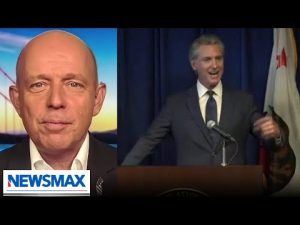The drama unfolding at the Centers for Disease Control and Prevention (CDC) has turned into a gripping soap opera that no one expected. After CDC director Susan Monarez was reportedly ousted for her disagreement over vaccine policies with Robert F. Kennedy Jr., the White House has quickly stepped in, appointing Jim O’Neill, Kennedy’s deputy, as her replacement. Talk about a plot twist! However, Monarez isn’t going quietly. She has decided to lawyer up with Abbe Lowell, the high-profile attorney who also represented Hunter Biden. It seems she is ready to fight, but what does this say about the CDC and its leadership?
The atmosphere at the CDC has grown increasingly tense, prompting several high-ranking officials to resign in protest of Monarez’s dismissal. One notable resignation came from Doctor Dimitri Daskalakis, whose critique of the organization’s direction raised eyebrows. In his resignation letter, he expressed concern over the CDC becoming a “tool” for policies that diverge from scientific truths. He highlighted issues with the immunization schedule, arguing it jeopardizes the health of young children and expectant mothers. It’s a serious accusation that certainly adds layers to this already complicated story.
The public is left scratching their heads. Why did the CDC find itself in this quagmire in the first place? Over the years, trust in the CDC has dwindled, particularly after controversial decisions during the COVID-19 pandemic and complicated vaccine guidelines that many found confusing. Critics argue that the agency has been operating more like a political battleground than a scientific institution, leading conservatives to question its credibility. With the new leadership change, many are optimistic that a shift back to prioritizing the public’s health, free from political entanglements, may finally occur.
As if this soap opera couldn’t get more intense, the resignations and backlash have intensified the spotlight on the CDC’s relationship with the current administration. Many believe that the shakeup could inspire a new wave of transparency and accountability, reflecting the broader desire among Americans for a government that better serves its people. Jason Miller, a former senior adviser for the Trump transition team, weighed in, claiming the wave of resignations is a sign that the agency is ready for a facelift, even if it requires unnecessary drama to get there.
All of this brings us to a curious and rather comical undercurrent: the rise of a “political grievance cottage industry.” Whether it’s hiring a controversial lawyer or releasing statements, it seems like there’s a trend among those dismissed from their government roles to cry foul instead of simply moving on. It raises the question of whether this is about genuine concern for public health or merely an attempt to stay in the news. For taxpayers, the focus should be on efficient leadership and effective health policies that truly protect the public. After all, taxpayers want results, not reality show theatrics, as the CDC navigates these tumultuous waters.







